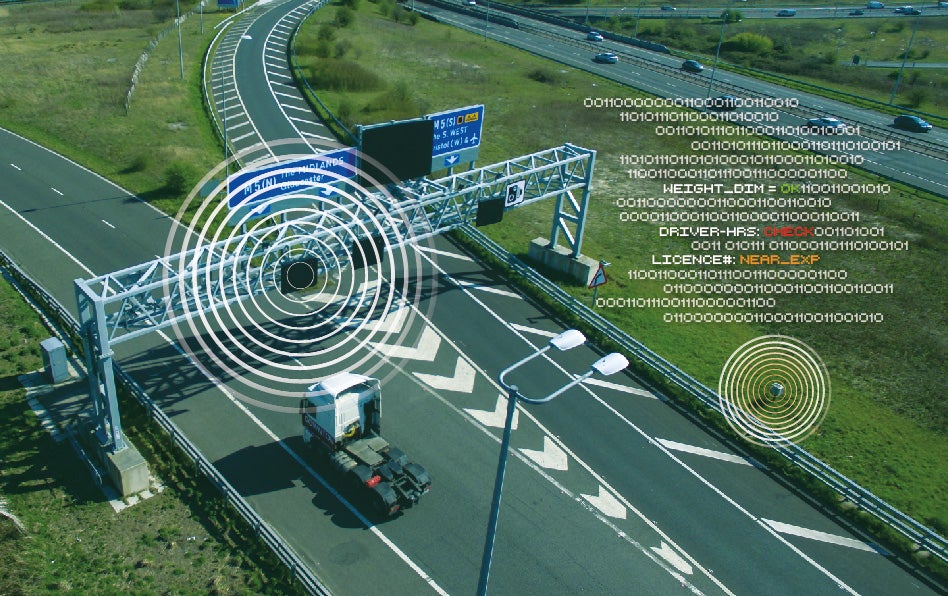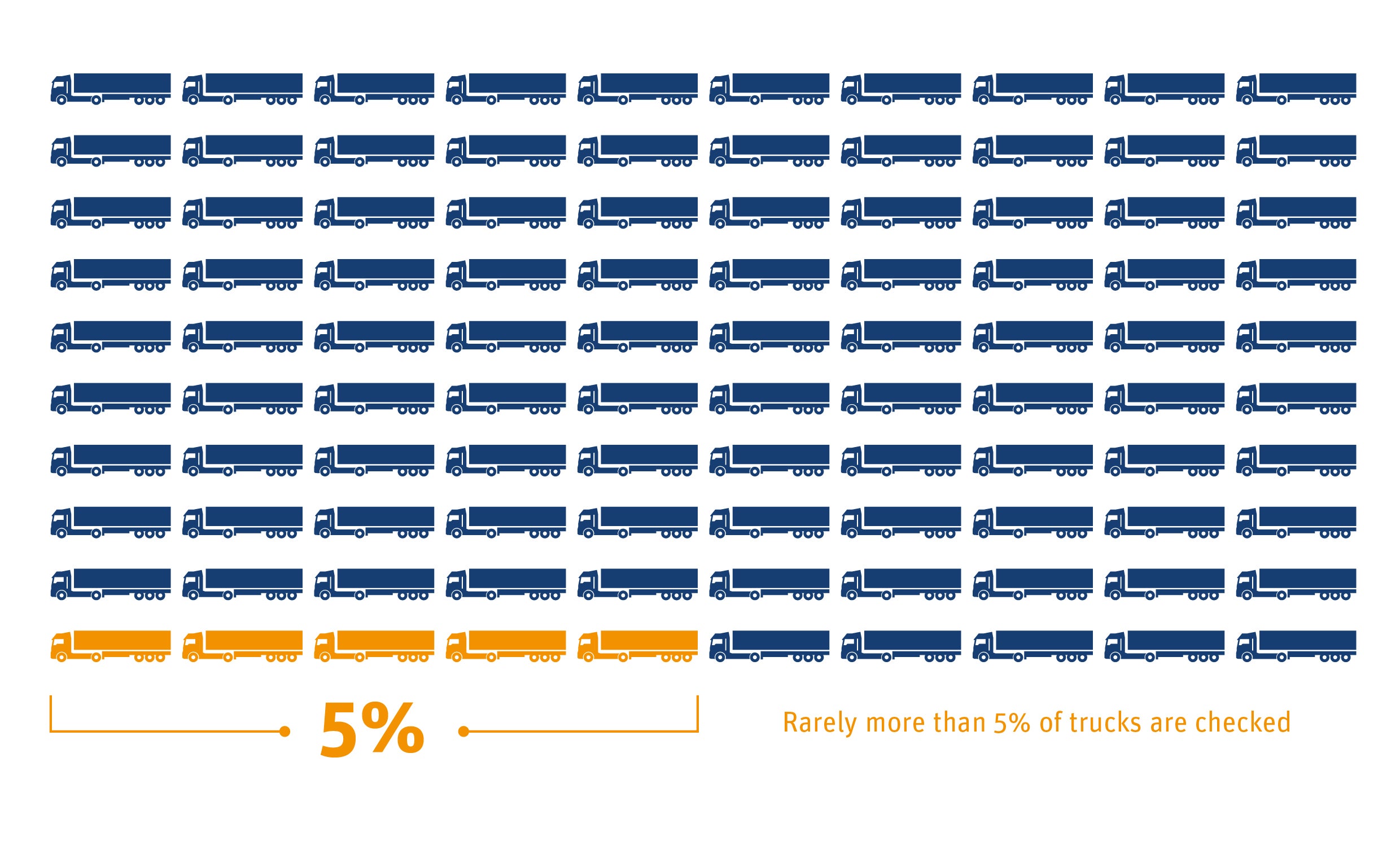In the area of road freight transport an increasing gap between policy formulation and the underlying policy objectives is becoming apparent. This in turn leads to undesired outcomes and can create specific challenges for the enforcement authorities (e.g. 5% enforcement rate). The current discussion on big data in transport and its promise for a move towards digital governance approaches can present an opportunity for bridging this gap. This can be achieved through more targeted and flexible regulatory frameworks and more efficient enforcement mechanisms based on quantifiable activity and performance indicators.
Another important related development is the potential wide-spread automation of road vehicles, including those for freight transport. This will affect both how these vehicles and the wider logistics industry will be organised and need to be regulated, as well as the necessary data-rich environment with high levels of data connectivity providing an enabling setting for digital governance. For this a two-step evolutionary approach can be envisioned, with as a first step an improved enforcement regime using currently underutilised data sources and contents, and eventually a move towards completely new approaches.
These new approaches would involve a move towards a fully data-driven policy-making approach. For this quantifiable activity and performance indicators would have to be defined together with mandated or incentives-based voluntary access to commercial or proprietary data sources combined with data contents already in the public domain and potentially some other data as well. Given the use of this data for regulatory purposes, a high level of trust, reliability, consistency, and continuity is required for the data to be used. Therefore much of the less structured wider big data might be problematic at this stage.
Moreover, ongoing developments in the field of data science itself might be required as a foundation for implementing such approaches successfully. In this context the blockchain approach, which is currently receiving much attention in various sectors, is of particular importance. The blockchain technology combines advances in data science, cryptography, and novel governance principles. Specifically, it enables frictionless transactions regarding payment and access to distributed services, data, and rights without the need for a third party to establish trust and guarantee data security, between transacting parties.
It opens up new possibilities to seamlessly manage distributed and fractional capacity, both for vehicles and infrastructure, and offers the possibility for customised, dynamic and sized-for-purpose transport to individuals. It also allows operators to manage access rights, data and payments across a broad network of unrelated and competing service providers and platforms. Its application to the transport sector can provide a solution to many of the current concerns in this area, but other horizontal issues applicable across sectors also need to be addressed as part of such new regulatory framework, including privacy and cyber-crime protection.
Whilst clear potential value of digital governance of road freight transport can be identified, a number of specific challenges still need to be addressed in order to allow wide-spread implementation.
No level playing field exists internationally in terms of technology readiness, policy approaches, and economic development. This might require a two-tier system allowing a minimum level of functionalities, or even a specific separate system for some users. At any given time a technical innovation, especially one that requires new technology to appear on-board the assets of a company, will be constrained by the replacement speed of those assets.
Therefore the challenge is to design regulatory schemes in a way that does not discriminate between actors depending on the technological characteristics of their vehicle fleets. Here the wider issue of shortening implementation times of technologies and the increasing time lag of policy and regulatory response to these developments also plays a role. But incentives for quicker transition could be conceived and deployed. Other related developments, which will affect both the need for, as well as the opportunity for digital governance of road freight transport, include demand matching platforms and the use of larger and heavier vehicles.
A review of the current legislative environment and enforcement practices in road freight allowed identifying emerging regulatory opportunities related to the availability of data and single out key issues in this area, which were discussed at a workshop with 18 international experts in Vienna in December 2016. The background research, outcomes from the workshop and additional consultation with other key stakeholders provide the basis for the report this post is based on. The full report on “Data-led Governance of Road Freight Transport – Improving compliance” can be downloaded from the ITF-OECD website.
This project has been carried out as part of the ITF’s Corporate Partnership Board (CPB).
*Dr. Tom Voege joined the International Transport Forum at the OECD as a Policy Analyst in 2015. At the ITF he is coordinating work on Intelligent Transport Systems (ITS), including vehicle automation, shared mobility concepts, and big data in transport. Prior to joining the ITF he worked for the United Nations (UN-DESA) as a Road and Traffic Safety Expert, following on from earlier roles in management consulting and academia. He holds an MSc and a PhD in Transportation Planning and Engineering, both from the University of Southampton in the UK. He is on the Scientific Advisory Board of the Springer Lecture Notes in Mobility and is a Member of the TRB Committees on Intelligent Transport Systems and on Vehicle Highway Automation.
*******************************************************************************************************************************
“Regulatory challenges of the transport sector over the next decade” was the central topic of the 7th Regional Policy Dialogue of the Transportation Network 2017, a meeting with representatives of Latin American and Caribbean countries and IDB experts. This link includes the agenda and the presentations of the event.




Leave a Reply